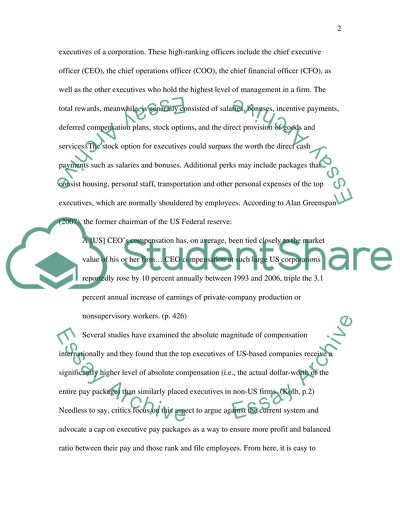Cite this document
(Executive Compensation Coursework Example | Topics and Well Written Essays - 1750 words, n.d.)
Executive Compensation Coursework Example | Topics and Well Written Essays - 1750 words. https://studentshare.org/macro-microeconomics/1554728-executive-compensation
Executive Compensation Coursework Example | Topics and Well Written Essays - 1750 words. https://studentshare.org/macro-microeconomics/1554728-executive-compensation
(Executive Compensation Coursework Example | Topics and Well Written Essays - 1750 Words)
Executive Compensation Coursework Example | Topics and Well Written Essays - 1750 Words. https://studentshare.org/macro-microeconomics/1554728-executive-compensation.
Executive Compensation Coursework Example | Topics and Well Written Essays - 1750 Words. https://studentshare.org/macro-microeconomics/1554728-executive-compensation.
“Executive Compensation Coursework Example | Topics and Well Written Essays - 1750 Words”. https://studentshare.org/macro-microeconomics/1554728-executive-compensation.


